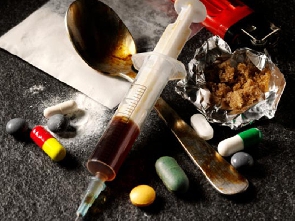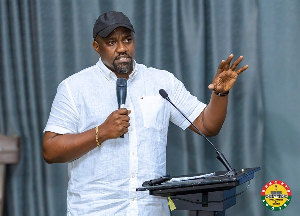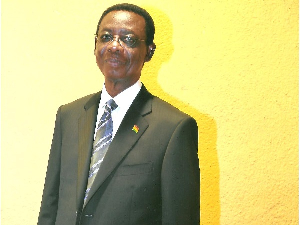Kofi Boateng, the Ahafo Regional Commander of the Narcotics Control Commission (NaCoC) has called for a stronger collaboration with the Ghana Education Service to counsel and refer drug abuse students to appropriate rehabilitation centres for early treatment.
He said during this period, such drug-abused students were in a health and humanitarian crisis and therefore needed assistance, adding that, the school authorities should liaise with NaCoC, Mental Health Authority, and Mental Health Directorates of Ghana Health Service for effective counseling of such victims.
Boateng made the call in an interview with the Ghana News Agency on the sidelines of the regional celebration of World’s Drugs Day at Ntotroso in the Asutifi North District of the region.
This year’s celebration was on the theme “People First: Stop Stigma and Discrimination, Strengthen Prevention”.
Boateng said the drug problem was a complex issue that affected millions of people worldwide and that many drug users were stigmatised and discriminated against, which could further harm their physical and mental health and prevent them from accessing the assistance they required.
He said the drug situation in the region was like other parts of the country and the world, saying tramadol, raw weed, weed toffee, weed biscuits, and weed mixed with alcohol (laka bitters) were the most abused substances, especially among the youth in the region.
Boateng said drug users believe that it offers them strength for farming, mining, and timber businesses, which were the three major commercial activities in the region.
He said the region operated the Drug Demand Reduction (DDR) and Enforcement and Control Units, saying the unit had undertaken several sensitisation exercises in many schools to enlighten and prevent the young ones from engaging in the use of drugs.
The DDR also offers education in churches and mosques, community sensitisation on market days, and media engagements including information to help reduce the demand for drugs, Boateng said.
General News of Thursday, 29 June 2023
Source: GNA
NaCoC calls for stakeholder collaboration to counsel youth against drug abuse
Entertainment












